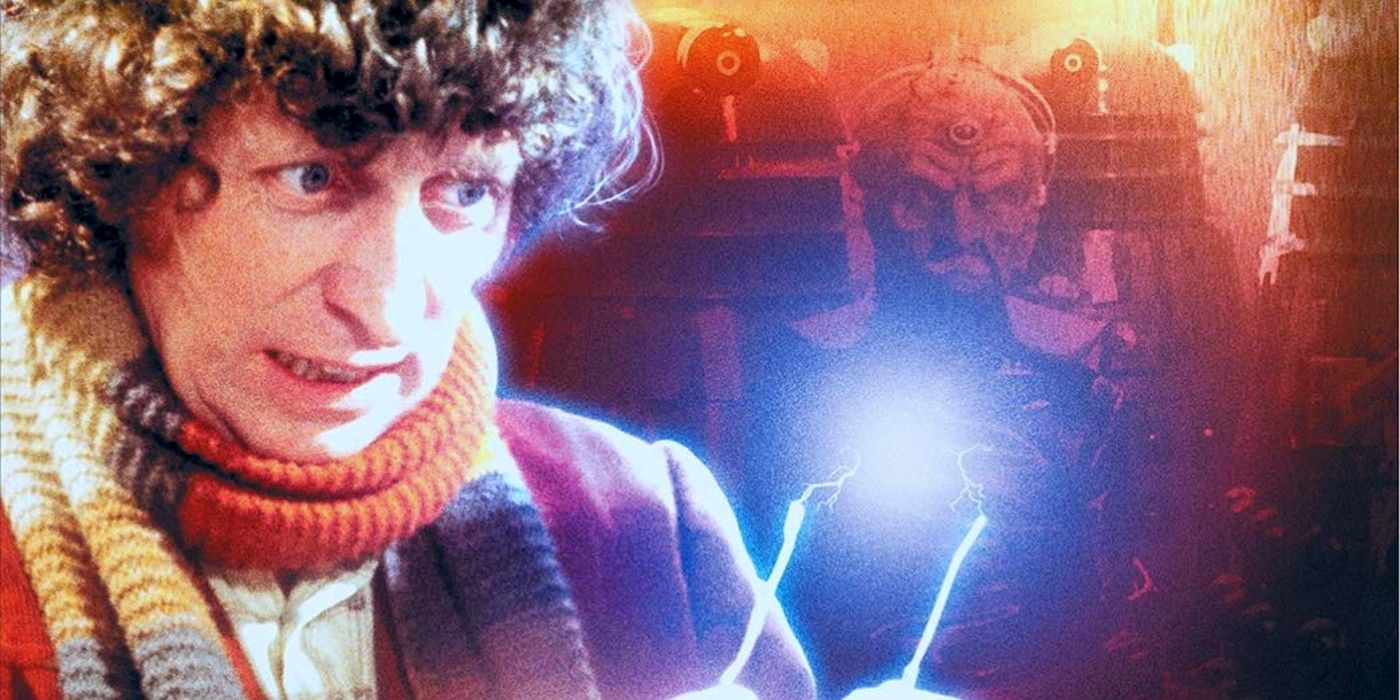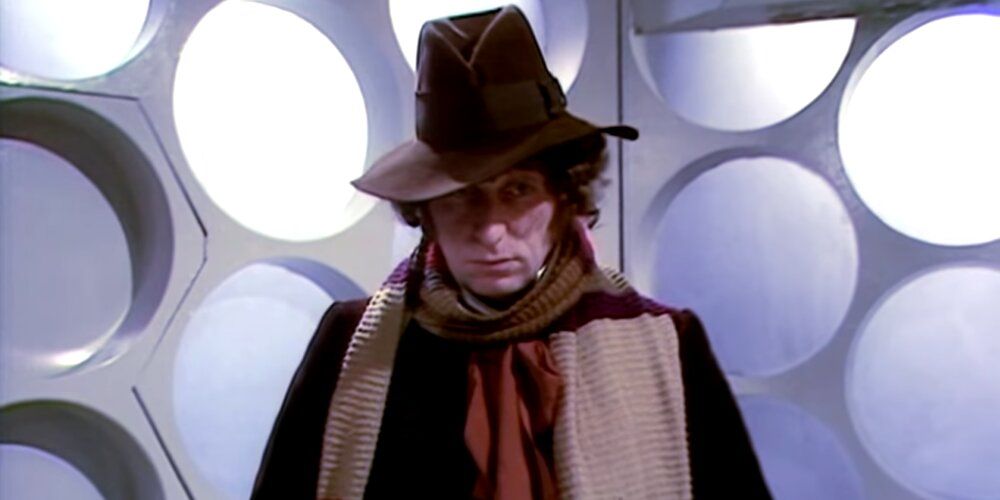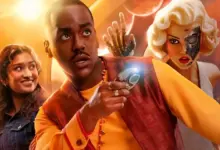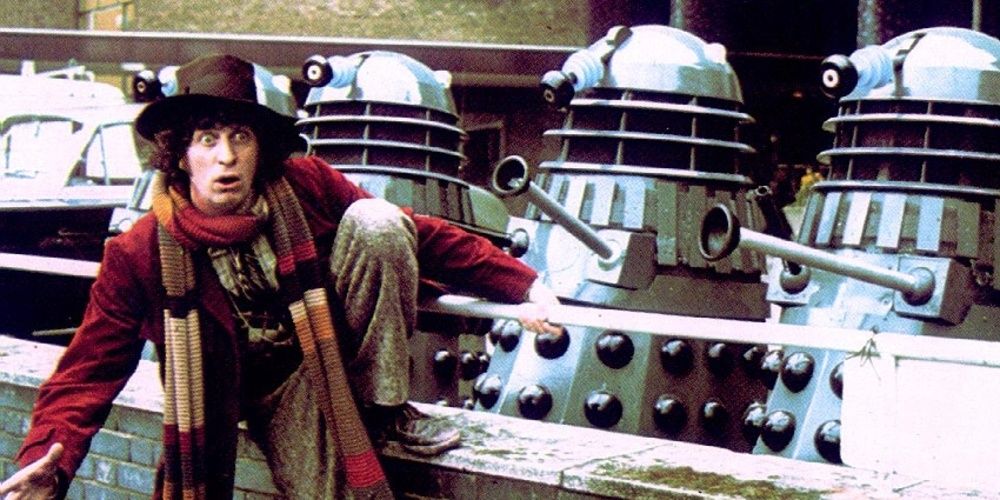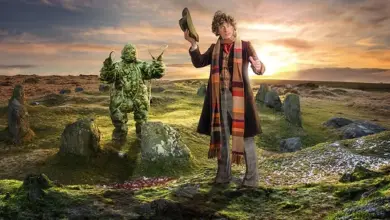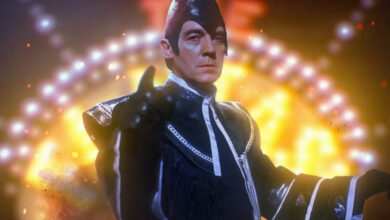50 Years Later, This Dark Doctor Who Story Remains Required Viewing for Tom Baker Fans
The past year has been an exciting time for fans of Tom Baker’s Fourth Doctor. In 2024, the Doctor Who fan base celebrated 50 years since the actor’s first appearance as the Time Lord, in the conclusion to 1974’s “Planet Of The Spiders.” Since assuming the role of the Doctor’s fourth incarnation all those years ago, Tom Baker has cemented himself as the most iconic Doctor. He assumed the part between 1974 and 1981, becoming the longest-running incarnation. Since stepping down from Doctor Who, Tom Baker has continued to play the character for audio dramas produced by Big Finish Productions, showing his clear affection for the TV Series.
Recently, Tom Baker has been recognized for his iconic status in British television. The actor was awarded an MBE for his services to television in the New Year’s Honors list, which is decided by the British Royal Family, based on recommendations from the UK government. The New Year’s Honors aim to celebrate individuals who have proven game-changing in their recognized industry, or through charity work. Tom Baker’s recent award, coupled with his 50th Anniversary Doctor Who celebrations, has thrown him back into the limelight among sci-fi viewers. Doctor Who fans, particularly, are celebrating his greatest Doctor Who serial, “Genesis Of The Daleks.” This groundbreaking story turns 50 years old on March 8 and sees the Fourth Doctor and his companions, Sarah Jane Smith and Harry Sullivan, sent on a mission by the Time Lords to avert the Daleks’ creation. Written by Terry Nation, it is considered by many to be the Daleks’ finest hour.
The Fourth Doctor’s Speech On Morality Is Timeless
One of the greatest moments in “Genesis Of The Daleks” is the Fourth Doctor’s speech on the moral implications behind the Time Lords’ instructions. The Doctor’s race has sent the eccentric traveler and his friends to Skaro, during the war between the Kaleds and the Thals. They attempt to exploit the Doctor’s past with the Daleks, to stop their creator Davros from bringing his creations to life. However, the Doctor is a devoted pacifist. The concept of eliminating an entire species from existence does not sit right with him.
Upon being faced with the opportunity to wipe out his greatest enemies forever, the Doctor is morally conflicted. He asks himself if he has “the right” to play God and erase an entire population from the timeline before they terrorize the universe. On one hand, committing mass genocide and destroying the Daleks completely would save countless lives throughout history, who would otherwise have been killed by these maleficent beings. On the other, it would make the Doctor as cold and ruthless as the Daleks themselves. As the Doctor points out, he’d “be no better than the Daleks” if he chose to kill them all.
This speech on morality is utterly timeless. It speaks to the age-old dilemma of whether it would be right to kill evil dictators from history, such as Adolf Hitler and Joseph Stalin, as a baby. While committing such a heinous act would prevent the deaths of many innocent people, murdering these people before they became bloodthirsty rulers would be judging them for crimes they have yet to commit. Placing a morally righteous character like the Doctor in the middle of such a predicament is ingenious, as it pushes the character’s strong beliefs, and makes them question their worldviews.
Genesis Of The Daleks Has Become Important To The Show’s Lore
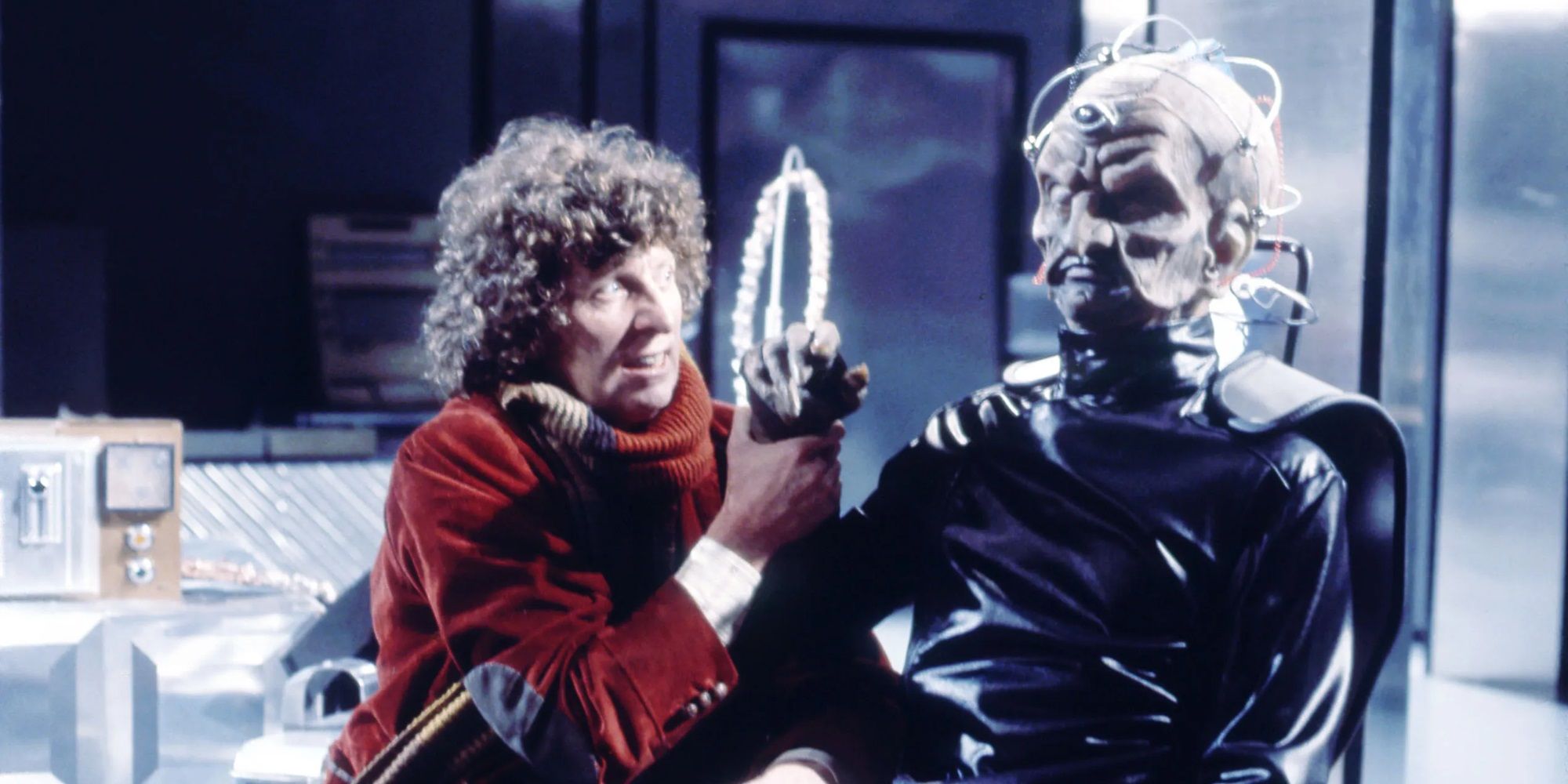
“Genesis Of The Daleks” morality tale has become hugely important to Doctor Who’s lore. Its famous speech, for instance, was later explored further in the Steven Moffat two-parter “The Magician’s Apprentice/The Witch’s Familiar.” Series 9’s fantastic opener sees Peter Capaldi’s Twelfth Doctor – who, like the Fourth Doctor, has also delivered some of the best quotes – meet Davros as a child, during the early years of the Kaled and Thal war. Armed with a Dalek eggwhisk, the Doctor recalls his fourth incarnation’s iconic statement, when he asks whether a person could “kill” a child destined to “destroy millions of lives.”
As with his fourth incarnation, the Twelfth Doctor ultimately decides against killing the being destined to murder several individuals. In “Genesis Of The Daleks,” the Fourth Doctor delays the Daleks’ development by a thousand years, by destroying the incubation chamber. Upon meeting the child Davros in “The Magician’s Apprentice/The Witch’s Familiar,” the Twelfth Doctor saves Davros from the hand mines rather than shooting the young child dead. The Doctor believes they must be better than their enemies, rather than sink to their levels of destruction.
“Genesis Of The Daleks” has also been recontextualized in recent times as being a key event that led to the devastating Time War. This war between the Time Lords and the Daleks became a key aspect of the Doctor’s life upon Doctor Who’s return in 2005, with the supposed destruction of Gallifrey leaving a heavy emotional toll on the Time Lord. The 2006 official Doctor Who annual sees Russell T Davies confirm “Genesis Of The Daleks” to be the act that instigated the Time War. The Time Lords’ attempt to interfere with the Daleks’ timeline puts them directly in the firing line of Davros and his creations, who become hellbent on wiping out the Doctor’s race. “Genesis Of The Daleks'” holds a major influence over Doctor Who’s 2005 revival, cementing it as an essential watch for viewers of the sci-fi series.
The Fourth Doctor And Davros Are A Great Match
Among the most gripping elements of “Genesis Of The Daleks” is the rivalry between the Fourth Doctor and Davros. Davros is considered one of the best Doctor Who villains, and “Genesis Of The Daleks” is the story that best reflects his potential. Upon meeting Davros, the Doctor tries to reason with him, by informing him about how his Daleks would become forces of evil. However, Davros doesn’t care, and views the prospect of creating a species that wipes out so many lifeforms as giving him a power that sets him “above the Gods.” The Doctor’s greatest weapon is usually his way with words, but Davros is a dictator who won’t listen to logic. Davros leaves the Doctor powerless, and that’s what makes him so compelling.
The Fourth Doctor and Davros are both more similar than the pair care to admit. They are both men of science, with impressive intellect. They are also driven by an innate curiosity to seek answers for things that don’t make sense, such as Davros’s keen interest in the mysterious Doctor and his knowledge of the Daleks’ future, and the Doctor’s interest in whether Davros can be convinced to halt his plans to unleash the Daleks on the universe. However, while the Doctor believes in finding peaceful solutions to intergalactic conflicts and giving a voice to those who are not being heard, Davros seeks power and wishes to dominate the universe through his Dalek army.
Their differing philosophies see them clash several times throughout this Doctor Who serial. The Doctor becomes frustrated by Davros’s power-hungry nature, labeling him as “mad”. Meanwhile, Davros is rattled by the Doctor’s mission to avert the Daleks’ genesis, interrogating the Time Lord into revealing how Davros’s race of hate-fueled pepperpots was defeated during the Doctor’s many encounters with them. Davros pushes the Doctor’s nerve throughout “Genesis Of The Daleks,” to the point where he considers turning off Davros’s life support machine.
“Genesis Of The Daleks” has proven so popular among Doctor Who fans because of how much it pushes the Doctor’s moral compass. The Doctor is a deeply principled individual, who takes pride in his desire to resolve situations through peaceful solutions rather than resorting to violence. “Genesis Of The Daleks” is a rare occasion where the Doctor seriously considers a more volatile approach, because of the millions of lives that the Daleks will claim. He even comes close to placing Davros’s life in danger, because of the Kaled scientist’s extremely corrupt worldview. It is essential viewing for all Doctor Who fans, due to how it explores the Doctor’s psychology and demonstrates how the traveler will always find another way to stop his greatest enemies, even when he is placed under pressure from his own people to take a more abrasive approach.
